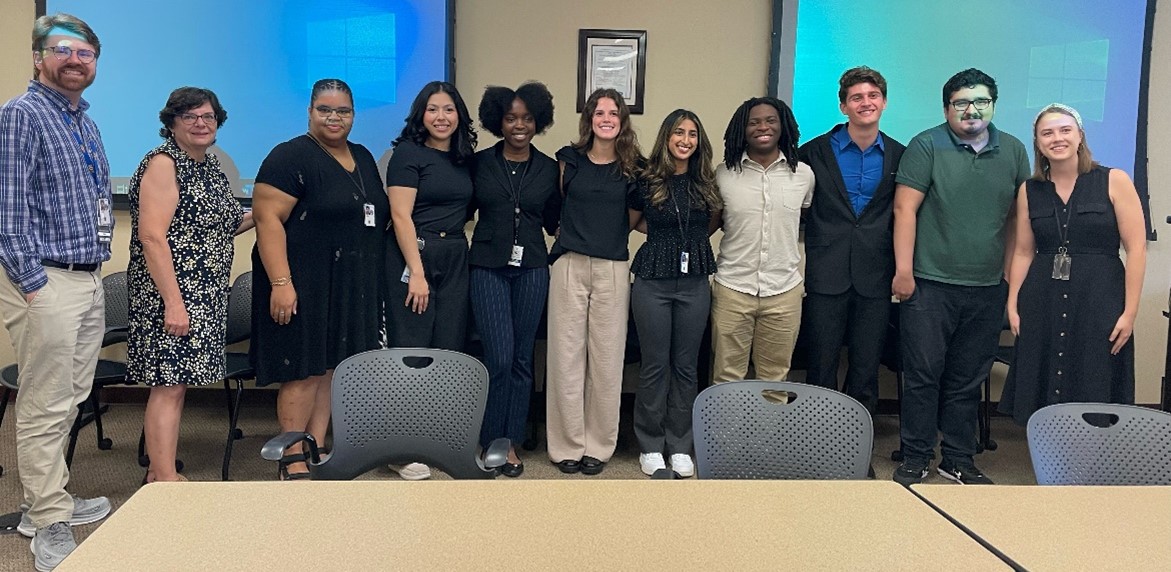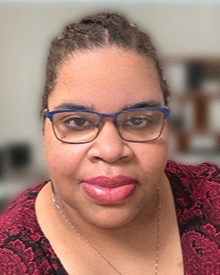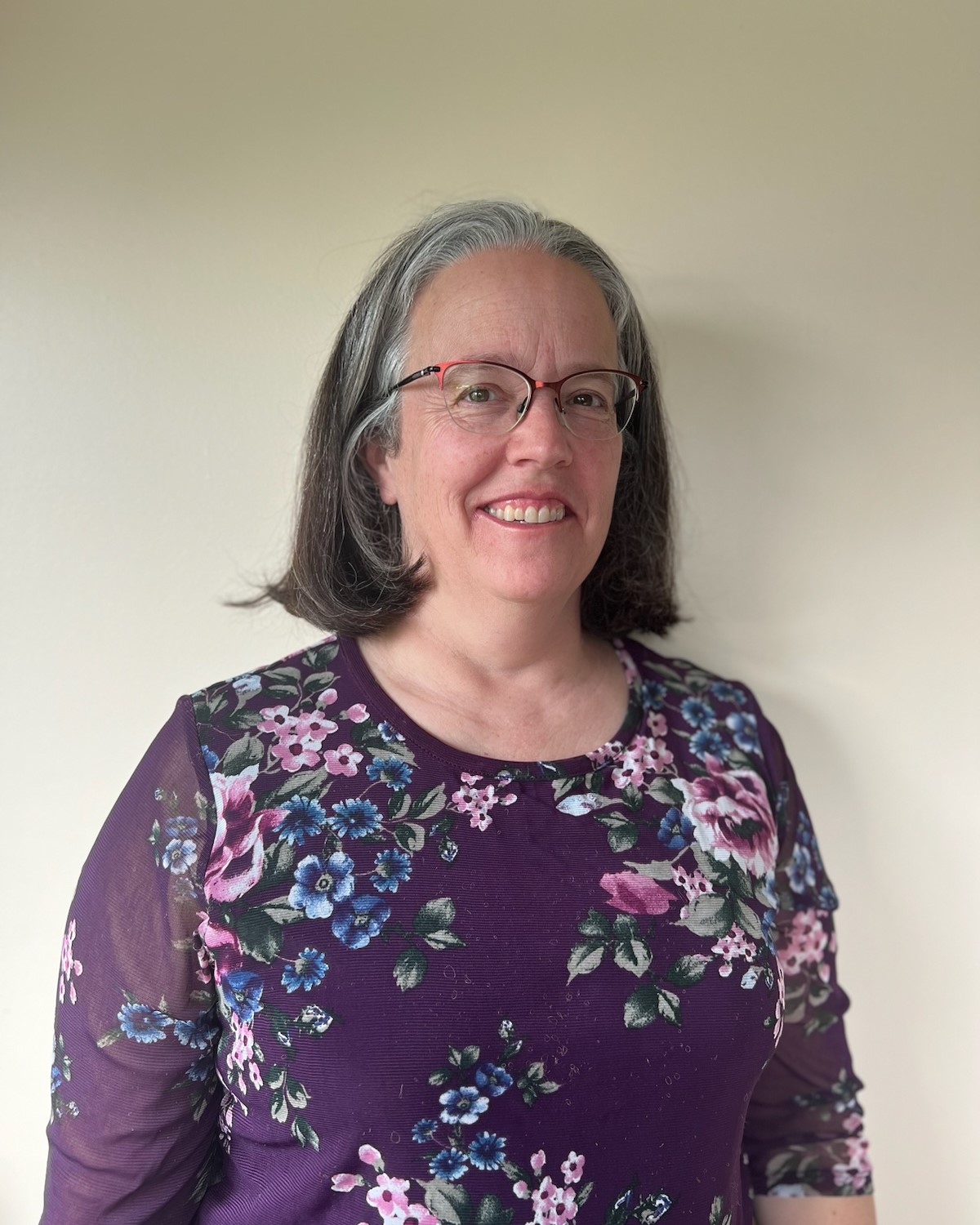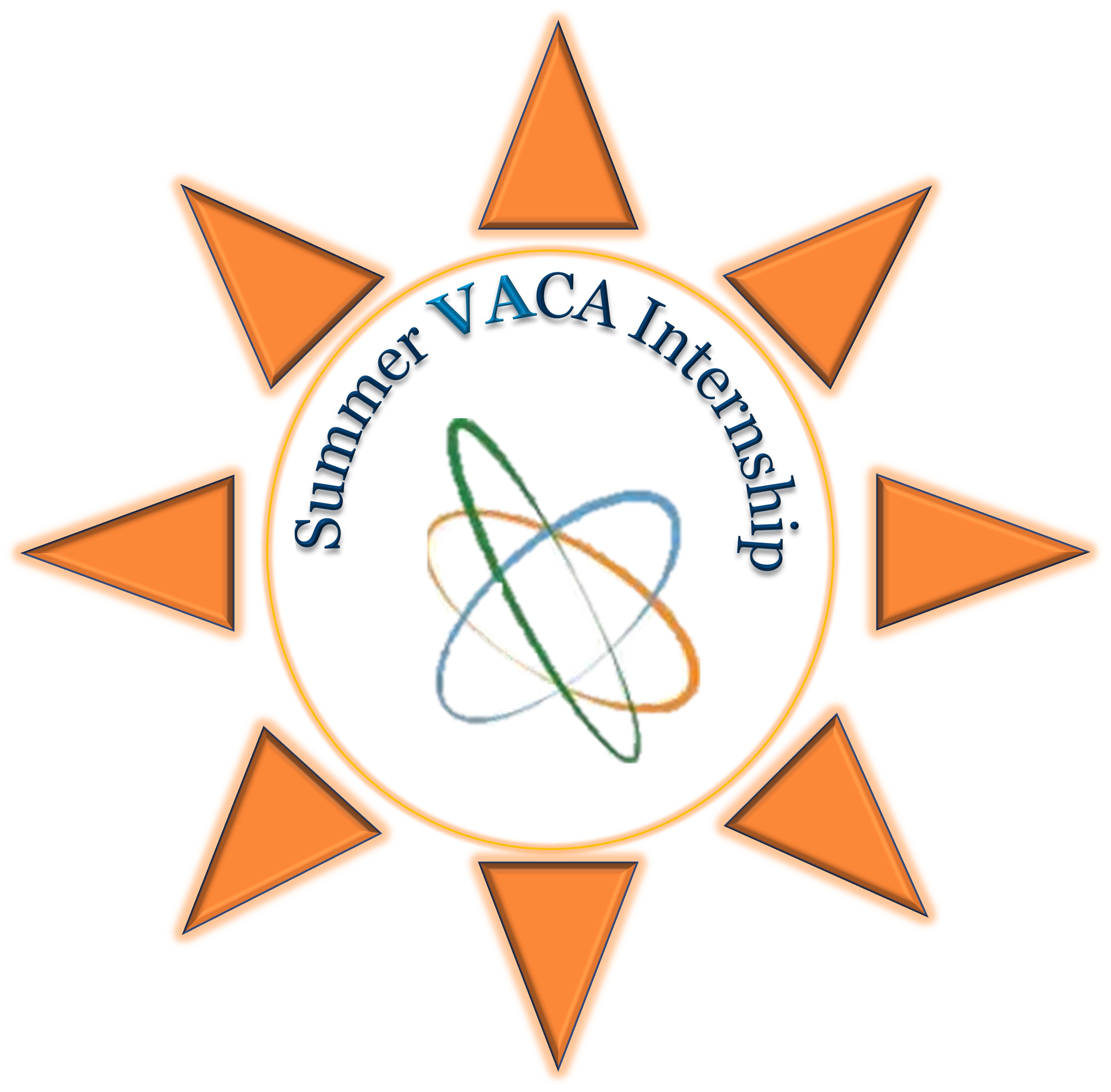Center of Innovation for Complex Chronic Healthcare
Summer VA CINCCH-Academic (VACA) Research Program
The Center of Innovation for Complex Chronic Healthcare (CINCCH) is offering full-time, paid positions during the summer to undergraduate students in health science fields.
CINCCH, with support from VA Office of Research and Development, is providing the opportunity for undergraduate students from diverse backgrounds to obtain hands-on research experience in health services and outcomes research and team-based science to reinforce goals for pursuing a scientific research career.
About the Program
The Summer VA CINCCH-Academic (VACA) Research Program for 2025 will occur from June to August (8-week to 10-week program). Accommodations for start and end dates may be made to meet class schedule needs. This program is a full-time commitment to research activities.
This is a full-time position (40-hours a week).
Interns will be hired on as a GS 3 Step 1 (see link for more information about pay scales: Chicago Pay Locality - General Schedule Pay Areas (federalpay.org)). Travel reimbursement and housing will not be provided to interns.
Interns are expected to be in-person at the CINCCH offices at Edward Hines Jr. hospital in Hines, Illinois.
Interns will have the opportunity to return each summer until graduation or if enrolled in graduate school.
The goals of the Summer VACA Research Program are to:
1) Provide a summer research experience to undergraduate students on VA topics and methods in health services research and the VA learning health system and how it relates to improving the health care of Veterans
2) Prepare students for a graduate program in the health sciences.
The purpose of this program is to increase diversity in the health sciences and enhance opportunities for future talented leaders from diverse backgrounds to pursue careers in health sciences.
Program Structure:
We are currently seeking applications for a limited number of full-time in-person paid student interns for 8 to 10 weeks for summer research at CINCCH. Prior research experience is not required, but an interest in scientific research is needed.
Hands-on Research Experience
Undergraduate students will be introduced to research being conducted at CINCCH and techniques/practices of the scientific community. Students will participate in ongoing research projects and contribute to mentor’s current study projects.
Interns will develop their own research question that can be addressed in the project they are working on with their mentors. During the first year of the summer VACA program, interns will be expected to develop an abstract and give a poster or oral presentation of their research at the end of the summer. During the second and or third year of the program, interns will expand on their project and produce a poster or oral presentation and a research paper. Interns will have an opportunity to receive feedback on their work from attendees.
Core curriculum
Participate in seminars and online-trainings in public health, health services research, health equity, implementation science, and professional development. Have career path conversations with academic and government scientists and staff. The program also allows for professional development with ample opportunities for networking with other researchers and students during project meetings and presentations.
Mentorship
Students will be paired with a mentor for weekly meetings, will contribute to the mentor’s active projects, and develop their own research project. Potential mentors and their research interests include:
Charlesnika T. Evans, PhD, MPH
Research interests: Prevention and management of infections and multi-drug resistant organisms in acute, long-term care, and SCI/D; implementation of strategies to reduce the spread of antimicrobial resistant organisms; antibiotic stewardship
Bridget Cotner, PhD
Research interests: Qualitative methods, access to healthcare, health disparities, patient engagement, quality of life, vocational rehabilitation, spinal cord injury, traumatic brain injury, virtual resources
Dezon Finch, PhD, MA
Research interests: Text mining, deep learning and machine learning methods, social determinants of health
Amy Herrold, PhD
Research interests: Chronic co-occurring conditions, neuromodulatory treatment, whole health, complementary and integrative health programs, substance use disorder, mild traumatic brain injury, transcranial magnetic stimulation, yoga
Neil Jordan, PhD
Research interests: Identifying high value services and systems of care for persons with complex chronic illness; economic evaluation; implementation cost analysis methods
Sherri LaVela, PhD, MPH, MBA
Research interests: Disability studies, chronic disease and secondary condition prevention and management, obesity management, nutrition science, patient-centered care, patient experience, patient-reported outcomes, psychosocial outcomes, spinal cord injury and rehabilitation, informal caregiving and family support, family-centered care
Megan Rech, PharmD, MS, FCCP, FCCM, BCCP
Research interests: Emergency medicine, pharmacotherapy, antimicrobial stewardship, neurologic disorders, sepsis, coagulopathy, anticoagulant reversal, trauma
Kevin Stroupe, PhD
Research interests: Impact of healthcare policy changes, dual use of public and private-sector health care, cost effectiveness of health interventions
Frances Weaver, PhD
Research interests: Prevention/management of secondary complications in persons with spinal cord injury and Parkinson’s disease, patient-centered & evidenced based care delivery; program evaluation and implementation science
Geneva Wilson, PhD, MPH
Research interests: Prevention and management of infections and multi-drug resistant organisms, diagnostic stewardship, antimicrobial stewardship
Past Internship Program Testimonials
“I haven’t yet worked on a research project so extensive as the one that I worked on here, and the experience of getting to do so helped me grow tremendously in the field of research.” (Summer 2024 Intern)
“I was never very comfortable with statistics but through this internship I’ve learned how to do statistical analyses and understand them as well.” (Summer 2024 Intern)
“I am so proud of what I accomplished this summer.” (Summer 2024 Intern)
“I greatly appreciated the workshops we had throughout the internship as they provided valuable new skills to implement in our education and future career.” (Summer 2023 Intern)
“The research project worked really well for me. I feel like I’ve learned a lot while working here.” (Summer 2023 Intern)
“I loved having the opportunity to write an abstract and present in front of the whole department.” (Summer 2023 Intern)
Summer VACA Internship 2024 Group (left to right): Dr. Chad Osteen (Mentor), Dr. Frances Weaver (Mentor), Dr. Geneva Wilson (Mentor/Summer VACA Program Co-Director), Jennifer Gaucin (Intern), Chinonyerem Nwankpa (Intern), Rebecca Cooper (Intern), Sophia-Rose Raval (Intern), Myles Williamson (Intern), Ranik Jelinek (Intern), Carlos Luna (Intern), and Marissa Wirth (Summer VACA Program Project Manager).
Summer VACA Internship 2024 Presentations:
- Clostridioides Difficile Infection: Review on appropriate testing in U.S. Veterans (Rebecca Cooper)
- Health Impacts of Toxin Exposure on Female Veterans at Camp Lejeune (Jennifer Gaucin)
- Identifying Neurobehavioral Conditions among Camp Lejeune Residents using Natural Language Processing on Electronic Health Records (Ranik Jelinek)
- Analyzing Social Media Posts to Examine the Impact of Legislation related to Toxic Exposure at Camp Lejeune on Veterans and Families (Carlos Luna)
- Patient and Facility Factors Associated with Recurrence of Carbapenem-Resistant Enterobacterales (CRE) Infection Among Veterans (Chinonyerem Nwankpa)
- Loneliness associations with unhealthy lifestyle behaviors in persons with SCI/D (Sophia-Rose Raval)
- Vocational Rehabilitation and Mental Health: Evaluating program attendance for Veterans with mental health conditions (Myles Williamson)
You can also explore prior summer interns' experiences.
How to Apply
All application materials will be due by January 7th, 2025.
In order to be considered for this internship, you must complete all application materials on both of the sites below.
|
Complete application materials on both: USAJobs: USAJOBS - Job Announcement AND CINCCH: https://vhaordfedramp.gov1.qualtrics.com/jfe/form/SV_3arQ0qAfAGCJisK |
Applicants who do not submit application materials to both 1) USAJobs and 2) CINCCH application link listed above will not be considered for this internship.
Applications will require the following materials:
- Resume/CV describing your academic, research and work experience
- Unofficial transcripts: transcript must include name of the academic institution, name of the student, courses completed and/or in progress and grades.
- Personal Statement: In 1-2 pages briefly describing 1) your short- and long-term career goals, 2) how the internship would support those goals, 3) specific research areas in Veteran health that you are interested in, and 4) potential CINCCH mentors you would like to work with.
- Letter of recommendation from a recent (within 1 year) or current advisor, mentor, teacher, or other person who can address your academic record and/or potential success in this internship.
Eligibility
Am I eligible?
To be eligible you must be an adult U.S. citizen and have completed at least two undergraduate years at an accredited university or community college and be from a group that is nationally underrepresented in sciences.*
Criteria:
1) Be a U.S. citizen
2) Be at least 18 years of age
3) By June 2025 have completed at least two undergraduate years at an accredited university or community college
4) Be from at least one of the group that is nationally underrepresented in sciences, such as*:
-The following racial and ethnic groups have been shown to be underrepresented in biomedical research: Blacks or African Americans, Hispanics, or Latinos, American Indians, or Alaska Natives, Native Hawaiians, and other Pacific Islanders. In addition, it is recognized that underrepresentation can vary from setting to setting; individuals from racial or ethnic groups that can be demonstrated convincingly to be underrepresented by the grantee institution should be encouraged to participate in VA programs to enhance diversity. For more information on racial and ethnic categories and definitions, see the OMB Revisions to the Standards for Classification of Federal Data on Race and Ethnicity (https://www.govinfo.gov/content/pkg/FR-1997-10-30/html/97-28653.htm).
-Individuals with disabilities, who are defined as those with a physical or mental impairment that substantially limits one or more major life activities, as described in the Americans with Disabilities Act of 1990, as amended. See NSF data at, https://www.nsf.gov/statistics/2017/nsf17310/static/data/tab7-5.pdf.
-Students who are U.S. Veterans or children of U.S. Veterans. Veteran is defined as a person who served in the active military, naval, or air service, and who was discharged or released therefrom under conditions other than dishonorable.
-Lesbian, gay, bisexual, transgender, and queer (LGBTQ+) persons.
-Individuals from disadvantaged backgrounds, defined as those who meet two or more of the following criteria:
-Were or currently are homeless, as defined by the McKinney-Vento Homeless Assistance Act (Definition: https://nche.ed.gov/mckinney-vento/).
-Were or currently are in the foster care system, as defined by the Administration for Children and Families (Definition: https://www.acf.hhs.gov/cb/focus-areas/foster-care).
-Were eligible for the Federal Free and Reduced Lunch Program for two or more years (Definition: https://www.fns.usda.gov/school-meals/income-eligibility-guidelines).
-Have/had no parents or legal guardians who completed a bachelor’s degree (see https://nces.ed.gov/pubs2018/2018009.pdf).
-Were or currently are eligible for Federal Pell grants (Definition: https://studentaid.gov/understand-aid/types/grants/pell).
-Received support from the Special Supplemental Nutrition Program for Women, Infants and Children (WIC) as a parent or child (Definition: https://www.fns.usda.gov/wic/wic-eligibility-requirements).
-Students from low socioeconomic (SES) status backgrounds (see https://nces.ed.gov/programs/coe/indicator/tbe).
-Grew up in one of the following areas: 1) a U.S. rural area, as designated by the Health Resources and Services Administration (HRSA) Rural Health Grants Eligibility Analyze OR 2) a Centers for Medicare and Medicaid Services-designated Low-Income and Health Professional Shortage Areas
* The above definitions are intended to increase the applicant pool but will not be used as a determinative factor in selecting participants in this program
Application Process
All application materials will be due by January 7th, 2025.
After initial review of applications, the Summer VACA Program Team will proceed to interviews with limited candidates. Interviews will be conducted in January 2025/February 2025.
Final decisions and offers for the internship will be sent in January/February 2025. Hiring process starts promptly after internship acceptance.
Meet the Summer VACA Program Team
Directors:


Dr. Charlesnika Evans (left) is the principal investigator (PI) and Director and Dr. Geneva Wilson (right) is the co-Director for the Summer VACA Program. They lead the internship organization, program development, and internship selection. Dr. Evans is a Research Career Scientist at CINCCH and a Professor of Preventive Medicine at Northwestern University, and has been conducting research in health services research and infectious disease epidemiology for over 20 years. Dr. Wilson started working for CINCCH in 2019 as a Research Health Scientist and is also an adjunct professor of Preventive Medicine at Northwestern University.
Staff:

 Marissa Wirth, MPH (left), is the Summer VACA Program Project Manager. As project manager, she assists the PIs in program development, organizes internship selection, and facilitates program needs. Mrs. Wirth has worked as a Project Manager at CINCCH since 2018.
Marissa Wirth, MPH (left), is the Summer VACA Program Project Manager. As project manager, she assists the PIs in program development, organizes internship selection, and facilitates program needs. Mrs. Wirth has worked as a Project Manager at CINCCH since 2018.
Cindi Fiandaca (right) is the Summer VACA Program Administrative Expert. As the Summer VACA Program Administrative Expert, she liaisons the hiring process with HR, program administrative organization, and program contracting. Mrs. Fiandaca is CINCCH’s Administrative Officer and has been with CINCCH since 1992.
Questions
If you have any questions about the Summer VACA program, please email Marissa Wirth at Marissa.Wirth@va.gov.




















